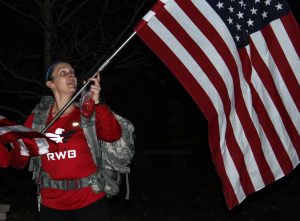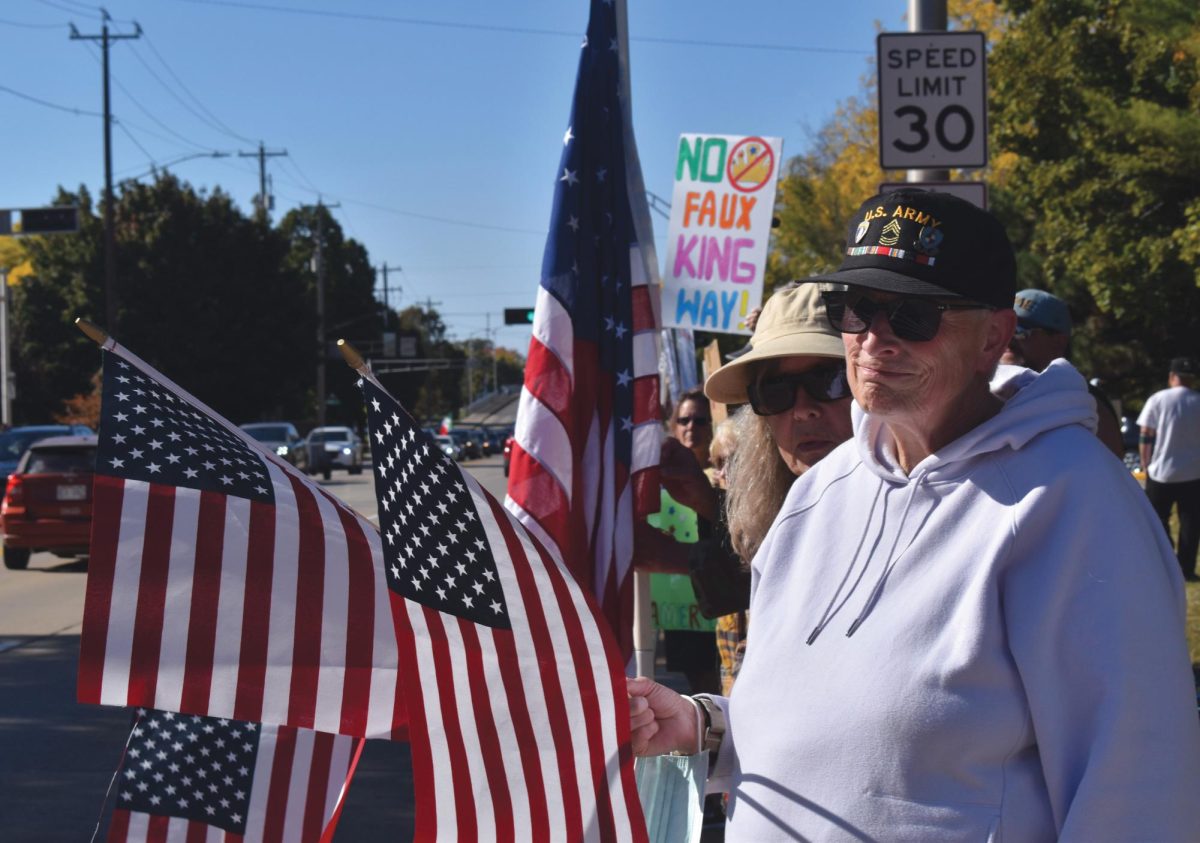
The UW Oshkosh Student Veterans Association and the UWO Veteran’s Resource Center walked 2.2 miles Thursday to raise awareness for the 22 veterans who commit suicide each day.
Army veteran and student Taylor Gilmet said there are many ways to help veterans and anyone who is thinking about suicide, but one of the easiest ways is to look for something out of the ordinary.
President of the Veterans Association Alex Kloss said people can help veterans by assuring them that they are there if they ever need someone to talk to.
Gilmet said when it comes to veterans and being deployed overseas, the combination of PTSD and suicide can be common in any veteran, and it’s hard for them to admit they are going through difficult times.
Specialist Stephan Harder said in some cases, people around the community do not know what is happening among veterans.
“In many cases with veterans, you don’t know what they have gone through while they were deployed, so you have to take that extra step and ask them if they need any help coping with stuff,” Harder said.
Army veteran William Moore said there are plenty of veterans in the community to start conversations with.
“If people just bring it up in normal conversation about 22 vets committing suicide everyday then they will have the knowledge,” Moore said. “It’ll make them aware of it so we can help these vets out.”
Pfc. Derrick Pulley said it can be hard to notice if someone is depressed, but once everyone knows what the indicators are it will help veterans and the community.
“First off, recognize the signs of depression, isolation, not talking as much, not social as usual, and once you recognized that, sit them down and help them through this rough patch they are having,” Pulley said.
Gilmet said regardless of recognizing the signs, an alternate approach is to simply make the community aware of what is going on around them.
Cadet Michael Oldendorf said the best way to decrease suicide among veterans is to increase awareness by posting information around campus.
“What if this was you or your family member thinking about suicide?” Oldendorf said. “Then that would make it more personal for people and really hit home because a lot of the times, people don’t really understand an epidemic like this unless it has a sentimental meaning to them.”
Pulley said the turnout was great, and there weren’t just veterans participating, but people on campus and in the community that care about veterans all across the country.
Kloss mentioned that although the main focus of the walk was for veteran suicide, it’s also for anyone thinking about suicide.
“We can sure cut the number down a lot if we just ask people how they are doing and sometimes come right out and ask them if they are thinking about committing suicide, veterans, non veterans, anyone,” Kloss said.








